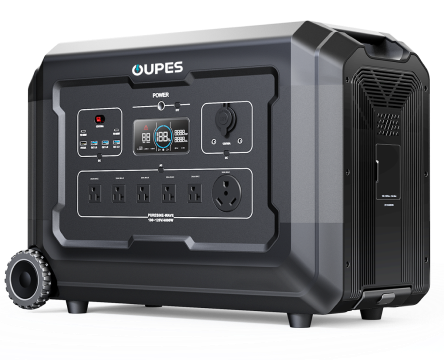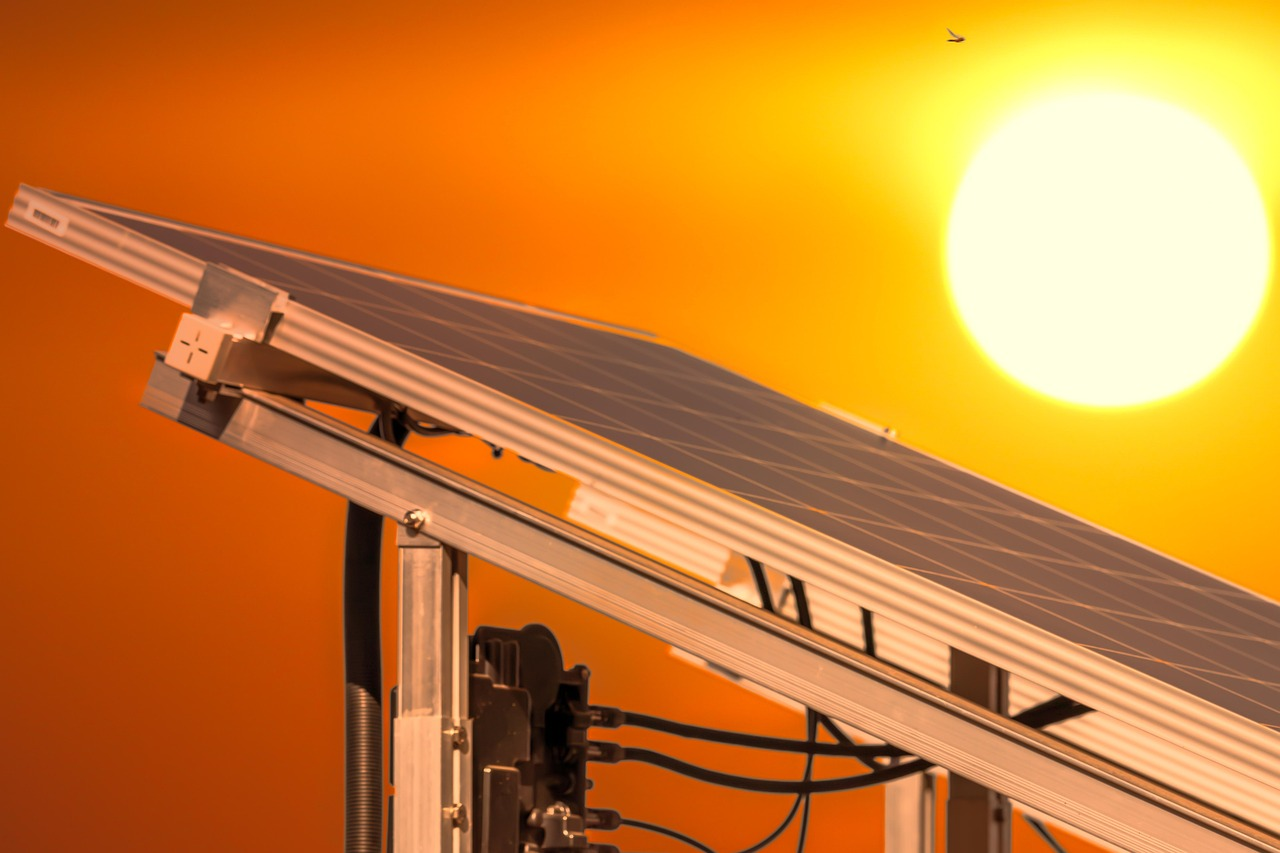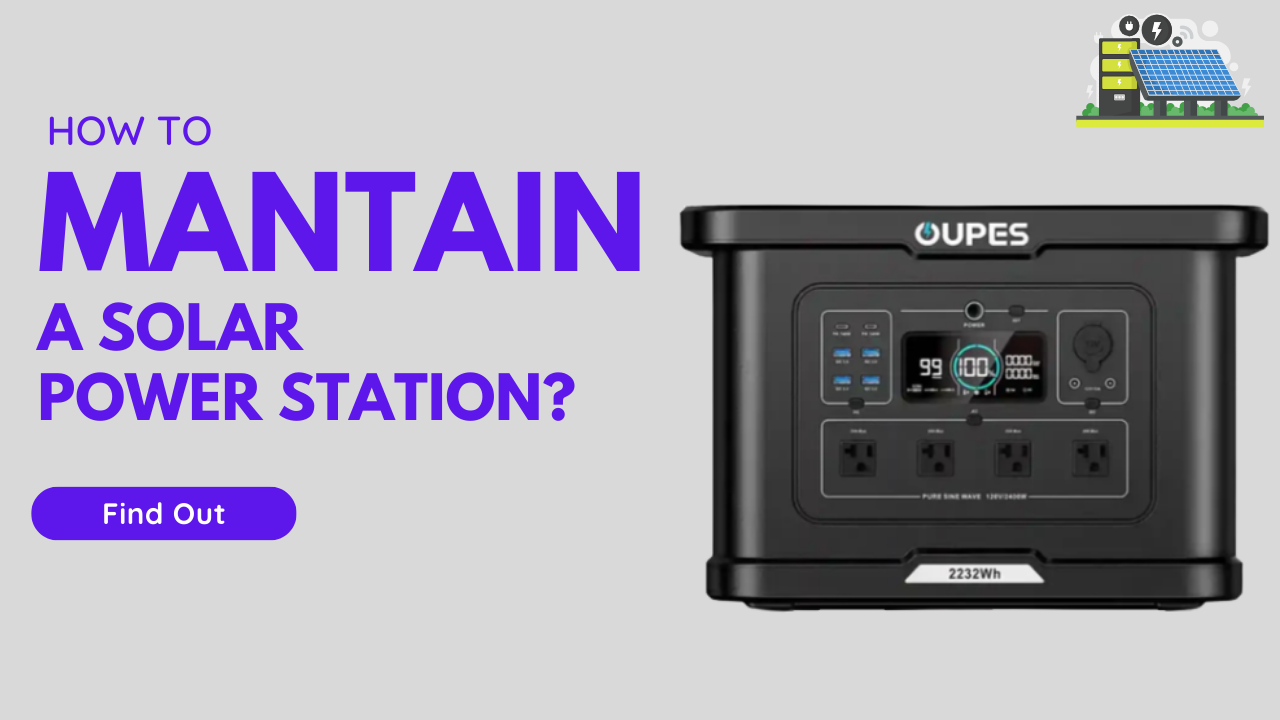Table of Contents
- Introduction: The Growing Need for Backup Power
- Gasoline Portable Generators: Strengths and Weaknesses
- Solar Portable Generators: Strengths and Weaknesses
- Scenarios: Choosing the Right Generator for Your Home
- Comparison Table: Gasoline vs. Solar Portable Generators
- Why OUPES Portable Power Stations Are the Smart Choice
- FAQs
- Conclusion
Introduction: The Growing Need for Backup Power
Extreme weather events, aging infrastructure, and the rise of remote work have made reliable home backup power a necessity. When the grid goes down, homeowners are left with two main options: gasoline portable generators or solar portable generators. Both have unique advantages and drawbacks, and the choice largely depends on lifestyle, budget, and long-term priorities.
Gasoline generators have traditionally been the go-to solution for emergencies. They’re relatively inexpensive upfront and can power large appliances with ease. However, they come with safety concerns, noise, and dependency on fuel availability. Solar portable generators, on the other hand, offer quiet, eco-friendly, and renewable energy, making them increasingly popular for modern households.
This article breaks down the key differences, real-world scenarios, and why OUPES solar portable generators may be the better long-term investment for your home.
Gasoline Portable Generators: Strengths and Weaknesses
Gasoline generators are combustion-powered devices that convert fuel into electricity. They’ve been widely used for decades and remain a common choice for backup power. Their greatest strength lies in their immediate availability of energy, as long as fuel is on hand.
Strengths of Gasoline Generators
- High Power Output: They can handle large household appliances like refrigerators, sump pumps, and HVAC units.
- Lower Initial Cost: Gasoline generators are often cheaper to buy upfront compared to solar solutions.
- Widespread Availability: Fuel is easy to purchase in most areas, making them dependable in short-term emergencies.
Weaknesses of Gasoline Generators
- Safety Risks: Gasoline emits carbon monoxide, making indoor use dangerous and requiring outdoor operation with proper ventilation.
- Noise Pollution: Generators can be extremely loud, disrupting household comfort and neighborly relations.
- Maintenance: Engines require regular upkeep, including oil changes, fuel stabilizers, and proper storage.
- Fuel Dependency: During major outages, fuel shortages may limit usability, as seen during natural disasters.
- Environmental Impact: Gasoline generators emit greenhouse gases, contributing to pollution and climate change.
Solar Portable Generators: Strengths and Weaknesses
Solar portable generators, like OUPES power stations, use rechargeable batteries powered by solar panels, AC outlets, or car charging. They are emission-free, quiet, and versatile, making them an attractive alternative to gasoline-powered units.
Strengths of Solar Portable Generators
- Safe for Indoor Use: No carbon monoxide emissions mean you can safely operate them inside your home.
- Silent Operation: Perfect for nighttime use without disturbing sleep or neighbors.
- Eco-Friendly: Powered by renewable solar energy, reducing your carbon footprint.
- Low Maintenance: With no moving parts or engines, they require little upkeep beyond battery management.
- Flexible Charging Options: Can recharge via AC wall outlets, car outlets, or solar panels for off-grid independence.
Weaknesses of Solar Portable Generators
- Higher Initial Cost: Quality units cost more upfront compared to gasoline generators.
- Capacity Limits: Smaller units may not handle heavy-duty appliances without higher-capacity models.
- Charging Speed: Solar charging depends on weather conditions and panel efficiency, though dual charging mitigates this.
Scenarios: Choosing the Right Generator for Your Home
The decision between gasoline and solar often comes down to lifestyle and scenario planning. Let’s explore real-world examples:
Short-Term Emergency Outages
If your area only experiences occasional outages lasting a few hours, a small gasoline generator may seem sufficient. However, an OUPES Exodus 1200 solar station can quietly power essential electronics like CPAP machines, routers, and lighting without noise or fumes, making it safer and more convenient indoors.
Extended Blackouts
In storm-prone areas where outages last days, relying on gasoline becomes tricky due to fuel shortages. Solar generators, especially larger units like the OUPES Mega 3 or Mega 5, provide long-lasting power with expandability options, ensuring refrigerators, freezers, and household electronics remain functional.
Off-Grid Living
For remote cabins or off-grid lifestyles, solar is the clear winner. With panels, you can recharge indefinitely. Gasoline requires constant refueling, which is impractical for long-term independence. OUPES stations are specifically designed for off-grid resilience, offering scalability and sustainability.
Comparison Table: Gasoline vs. Solar Portable Generators
| Feature | Gasoline Generators | Solar Portable Generators (OUPES) |
|---|---|---|
| Power Output | High, supports heavy-duty appliances | Varies, expandable with larger models |
| Safety | Carbon monoxide risk, outdoor use only | Zero emissions, safe indoors |
| Noise | Loud, disruptive | Silent operation |
| Fuel | Requires gasoline, vulnerable to shortages | Rechargeable via AC, car, or solar |
| Maintenance | Requires regular servicing | Minimal maintenance |
| Environmental Impact | Pollution from fuel combustion | Eco-friendly, renewable power |
Why OUPES Portable Power Stations Are the Smart Choice
OUPES solar portable power stations bridge the gap between performance and sustainability. With models across the Exodus and Mega series, users can find tailored solutions for any household. For example:
- Exodus 600: Compact, lightweight, perfect for small electronics during short outages.
- Exodus 1200: 992Wh capacity with 1200W output, ideal for CPAP, laptops, and lighting.
- Mega2: Larger capacities with up to 2500W output, suitable for refrigerators and essential appliances.
- Mega5: High-capacity units expandable up to 45.36kWh, ensuring whole-home coverage during extended outages.
Built with LiFePO4 batteries offering 3500+ charge cycles, OUPES stations provide long-term durability, making them superior investments compared to fuel-based options.
FAQs
Are solar portable generators powerful enough for whole-home backup?
Yes. Larger models like the OUPES Mega 5 can power multiple appliances and scale up with additional batteries.
Do solar generators work during cloudy days?
Yes, though charging is slower. OUPES models allow AC + solar dual charging for fast, reliable recharging.
How long does an OUPES station last?
With LiFePO4 batteries, they provide up to 10 years of use with over 3500 cycles.
Can I use solar generators indoors?
Yes. OUPES stations are emission-free and completely safe for bedrooms, living rooms, or apartments.
Are gasoline generators safe indoors?
No. They emit carbon monoxide and must always be operated outdoors with proper ventilation.
Which is more cost-effective long term?
Though solar has higher upfront costs, lower maintenance and free solar recharging make OUPES stations more economical over time.
Do solar stations require maintenance?
Minimal. Regular recharging and proper storage are enough to maintain battery health.
Can I run sensitive medical devices like CPAP on OUPES?
Yes. OUPES provides pure sine wave output for stable, safe power to medical devices and electronics.
Conclusion
Gasoline and solar portable generators both serve important roles in backup power. Gasoline offers immediate, short-term power but carries safety, noise, and fuel challenges. Solar portable generators, particularly OUPES models, deliver long-term sustainability, safety, and versatility.
For homeowners seeking peace of mind, eco-friendliness, and future-proof energy, OUPES solar power stations are the smarter choice. They ensure uninterrupted comfort and safety during outages while aligning with modern energy goals.

































Leave a comment
This site is protected by hCaptcha and the hCaptcha Privacy Policy and Terms of Service apply.